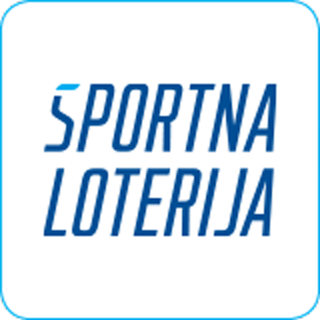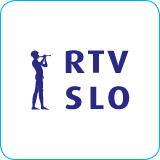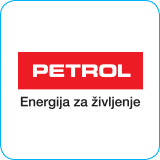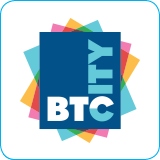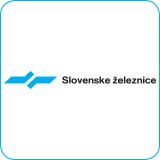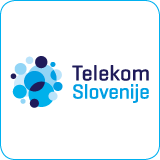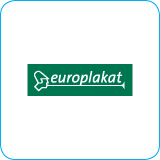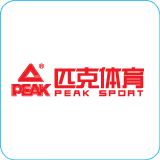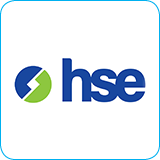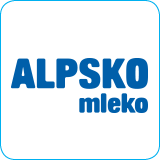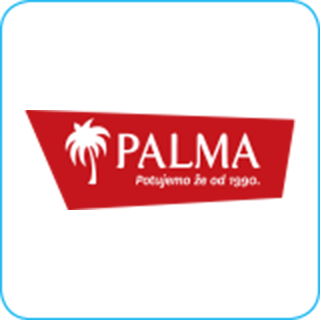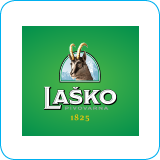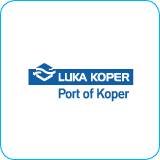Year 2010
 For Slovenia, two female athletes came to prominence in the Vancouver Olympic Games:After a bad fall and despite having broken ribs, Petra Majdič managed to win a bronze medal in the cross-skiing competition. She received the Terry Fox award for athletes who embody bravery and determination in conquering obstacles. Tina Maze was the only Slovenian female athlete who won two medals at these Olympic Games.
For Slovenia, two female athletes came to prominence in the Vancouver Olympic Games:After a bad fall and despite having broken ribs, Petra Majdič managed to win a bronze medal in the cross-skiing competition. She received the Terry Fox award for athletes who embody bravery and determination in conquering obstacles. Tina Maze was the only Slovenian female athlete who won two medals at these Olympic Games.In August 2010, Singapore hosted the first Youth Olympic Games which were introduced by the IOC following the initiative of its president, Jacques Rogge. The Slovenian athletes won four medals.
At the December meeting of the Assembly, Janez Kocijančič, was re-elected as President for the fifth time.
Year 2009

Based on the previously adopted documents from the field of doping and in accordance with the expectations of WADA and IOC, the OCS-ASF reorganised itself and focused on a more intensive programme for fighting against doping in sport in all fields. In 2009, it established a Committee for Fighting against Doping.
Year 2008

With five medals won by Slovenian athletes in Beijing, Slovenia was in third place in terms of countries with the most medals per number of inhabitants. The Paralympic team in Beijing was the strongest with 30 athletes and they won three medals.
With the project Slovenian Olympic Town which took place during the Olympic Games in Beijing, the OCS-ASF brought the Olympic atmosphere to the Slovenian capital for the first time.
Following the initiative by WADA, the OCS-ASF adopted the National Antidoping Committee’s Rules on Fighting against Doping and the OCS-ASF Rules against Doping.The documents presents the basis for a more efficient fight against the use of prohibited substances in sports.
Year 2007

The OCS-ASF established the Fund for Top Athletes which aims to provide financial support to the best athletes. In 2007, the athletes who won medals at the Olympic Games in Greece got financial support.
In the field of "sports for all", the OCS-ASF developed an online "sports for all" calendar application (in cooperation with the Ministry of Education and Sports of the Republic of Slovenia), which enables organisers of sports and recreational events and guided exercise to publish this kind of data on the web portal, free of charge.
Year 2006

The Olympic Games in Torino brought no medals for the Slovenes, but the Slovenian delegation nonetheless assessed their participation as successful. However, on this occasion the Slovenes were able to see the Olympic fire live, because it crossed through Slovenian territory as well.
In 2006, the OCS-ASF established a daughter company, OKS-Olimp, to carry out marketing services. The company took over all of OCS-ASF’s marketing activities. Its parallel activities include financial services, logistics and training.
At the December meeting of the Assembly, Janez Kocijančič, was re-elected as the President.
Year 2005
 Slovenia participated for the first time at the World Games in Duisburg, Germany.
Slovenia participated for the first time at the World Games in Duisburg, Germany.In Planica and Seča pri Portorožu, the OCS-ASF opened two new Olympic Centres in cooperation with the Centre for School and Extracurricular Activities.
In the field of top level sports, after two years of expert and analytical work by the OCS-ASF expert group, the draft of the Rules and Criteria for Registering and Categorisation of Athletes in the Republic of Slovenia was drawn up.
Janez Kocijančič, President of the OCS-ASF, attended the 34th General Assembly of the EOC in Dublin and was elected into the Executive Committee of the EOC.
Year 2004
 Slovenian athletes in Athens made us proud by winning four Olympic medals.In addition to winning medals in athletics and rowing – fields in which the Slovenes have already won medals – we were also delighted to see athletes win medals in judo and sailing. This meant that the number of top Slovenian athletes was increasing. This gave us much hope for further development.
Slovenian athletes in Athens made us proud by winning four Olympic medals.In addition to winning medals in athletics and rowing – fields in which the Slovenes have already won medals – we were also delighted to see athletes win medals in judo and sailing. This meant that the number of top Slovenian athletes was increasing. This gave us much hope for further development.The Paralympic team won four medals at the Olympic Games in Athens.
At one of its regular meetings, the Executive Committee adopted the new Rules of the National Antidoping Commission which are in sync with the WADA Code.
Year 2003

At Bled, the OCS-ASF hosted young athletes who participated in the Olympic Festival for European Youth.
Together with the Football Association of Slovenia, the OCS-ASF carried out the project Football Street in three large Slovenian towns: Ljubljana, Koper and Murska Sobota. In daily recreation and tournaments, 330 children participated. The project was included in the European street football project under the patronage of the German Sports Federation.
The OCS-ASF began the procedure for opening regional offices.
Year 2002

Slovenian athletes made us proud by bringing back a new medal from the 20th Winter Olympic Games in Salt Lake City. The ski jumpers won a bronze medal in the group ski jumping competition.
In Ljubljana, the Congress of the European Association for Fair Play took place in September with more than 90 participants and ambassadors of sport present.
At the December meeting of the Assembly, Janez Kocijančič, was re-elected as the President for the fifth time.
Year 2001

In October, the OCS-ASF celebrated the 10th anniversary of its operation.
In that year, the OCS-ASF and the Ministry of Education, Science and Sport established the National Antidoping Commission which took over the fight against the use of prohibited substances in sport. Jožko Osredkar was elected President of the Commission.
In June 2001, in Portorož, the OCS-ASF hosted general secretaries of all the European Olympic Committees and heads of delegations for OI Salt Lake City. Jaques Rogge, the then President of the EOC and of the IOC was also present at the seminar.
Year 2000

The Slovenian athletes achieved the biggest sports successes since independence at the Olympic Games in Sydney – they won two gold medals and increased the number of total Olympic medals.
After many years of preparation, the National Assembly of the Republic of Slovenia adopted the National Sports Programme which took into consideration the key comments of sports associations which were submitted via the OCS-ASF.
Year 1999
 In June, at the 109th meeting of the IOC in Seoul, Slovenia, Italy and Austria jointly presented themselves as applicants for the organisation of the 20th Winter Olympic Games. The project Games without Borders was praised by many, but did not get enough support. The organisation of the 20th Winter Olympic Games was entrusted to Torino instead.
In June, at the 109th meeting of the IOC in Seoul, Slovenia, Italy and Austria jointly presented themselves as applicants for the organisation of the 20th Winter Olympic Games. The project Games without Borders was praised by many, but did not get enough support. The organisation of the 20th Winter Olympic Games was entrusted to Torino instead.Within the framework of its endeavours to ensure a good status for Slovenian athletes, the OCS-ASF began to carry out major projects, such as the implementation of premium insurance for top athletes, the right to assign licences to athletes and sports workers in the field of top level sports and grants for athletes (already in its first year 75 athletes received the grant).
Slovenia hosted the meeting of the Executive Committee of European Non-Governmental Sports Organisations (ENGSO) in Ljubljana, as well as the meeting of the International Council of Arbitration for Sport (ICAS) at Bled.
Year 1998

The entirety of 1998 was marked by celebrating the 100th birthday of the Olympian Leon Štukelj. In his honour, the OCS-ASF, in cooperation with the Slovenian Olympic Academy organised an international symposium at Bled, called Sports – Old Age – Health. Before the start of the symposium, the Slovenian Olympic Academy established the Club of Slovenian Olympians and Miro Cerar became its president. To celebrate Leon Štukelj's 100th birthday, a book about him was published: 100 Years – 100 Photos.
Juan Antonio Samaranch, the President of the IOC, attended the celebration event of the 100th birthday of Leon Štukelj.
Year 1997

In 1997, the OCS-ASF adopted the Rules of the Recognition of Awards and Acknowledgements, based on which the athletes, trainers, sports workers and other people who have contributed to the development of Slovenian sports receive awards and acknowledgments.
Slovenia appointed the ambassadors of sport – the athlete Miro Cerar and the handball player Simona Šturm. Stanislav Pintar was elected their deputy. In December, the European ambassadors of sports met in Strasbourg for the met time.
Juan Antonio Samaranch, the President of the IOC, visited Slovenia for the second time since its independence at the Golden Fox skiing competition. On this occasion, he received the golden symbol of liberty – a high state decoration – from Milan Kučan, President of the Republic of Slovenia at the time.
Year 1996
 In 1996, the world and Slovenia celebrated the 100th anniversary of the first Olympic Games of the modern era. At the same time, the OCS-ASF celebrated 5 years of operation.
In 1996, the world and Slovenia celebrated the 100th anniversary of the first Olympic Games of the modern era. At the same time, the OCS-ASF celebrated 5 years of operation.With the goal of maintaining and preserving the Olympic concept in Slovenia, the OCS-ASF began to carry out a number or projects and organised events aimed at spreading the Olympic mindset and handling diversity and the socialising of sports fans.
The Slovenian Olympians were good at winning Olympic medals – they brought home two medals from Atlanta, while the Paralympic team brought back no less than five medals. During the opening ceremony at Atlanta, Leon Štukelj, the oldest Olympian at the time, got a standing ovation during his lively stroll to the podium in the middle of the arena.
Year 1995

In 1995, the OCS-ASF established the Slovenian Olympic Academy and Miro Cerar became its president. That same year the Committee for Sports on the Local Level was established, which – in addition to the Committee for Sports for All and the Committee for Top Athletes – represents one of the pillars of the umbrella sports association.,
In addition to the new concepts of organisation of the OCS-ASF, 1995 was important due to new sources of financing for Slovenian sports. At the end of the year, the OCS-ASF established Športna loterija d.d., which presented a step forward in obtaining funds for sports, since part of the concession fees for gambling are distributed to sports associations through the Foundation for Financing Sports Associations.
Year 1994

Before the establishment of the umbrella sports organisation as we know it today, two organisation operated in Slovenia: the Olympic Committee of Slovenia (established on 15 October 1991) and the Sports Association of Slovenia, whose tasks were directed at developing sports and activities related to sports.
To ensure better organisation, possibility of better marketing and unified representation and acting in Slovenia and abroad, as well as to rationalise the operations, both organisations were merged into the Olympic Committee of Slovenia – Association of Sports Federations (OCS-ASF) following the decision of the members Committee of Slovenia and the Sports Association of Slovenia.
Janez Kocijančič, PhD, was elected the first president of the Slovenian Olympic Committee.
Year 1993

On 14 June, the OCS was accepted into the International Committee of Mediterranean Games (ICMG) which gave the Slovenian athletes the right to participate at the Mediterranean Games. In the French region Languedoc-Roussillon, 159 athletes competed, winning no less than 20 medals for Slovenia in the second half of June.
Juan Antonio Samaranch, the President of the IOC, visited Slovenia for the first time since it became independent.
In 1993, SKB became the main sponsor of the Slovenian Olympic teams.
Year 1992

The IOC recognised the independence of Slovenian Olympic sports on 5 February 1992, when the OCS was accepted as a full-time member of the IOC. That same year, the OCS became a full-time member of the Association of European National Olympic Committees.
The Slovenian athletes first participated at the Olympic Games under the Slovenian flag in February, at the Winter Olympic games in Albertville in France, followed by the 25th Summer Olympic Games in Barcelona where they won the first medals for the newly independent state. That same year the first sponsorship agreements were signed.
Year 1991

On 15 October 1991, the Slovenian Olympic Committee was established. On this day, the Slovenian Olympic Charter was signed at Štihova dvorana, in Cankarjev dom, Ljubljana. In addition to Leon Štukelj and Miro Cerar, 29 delegates from expert associations and Olympic branches were present at the signing, as well as representatives of the five expert association from branches recognised by the IOC. Janez Kocijančič, was elected the first President of the OCS-ASF.


